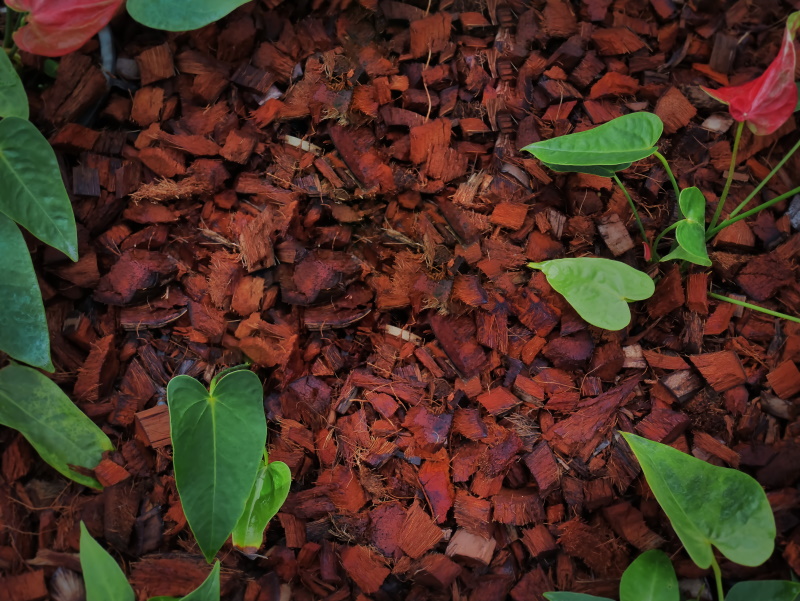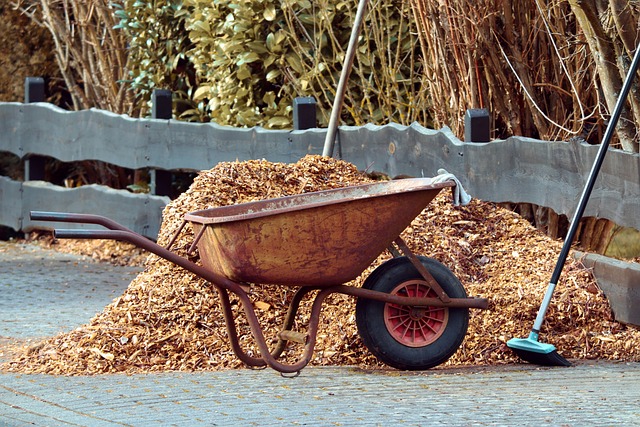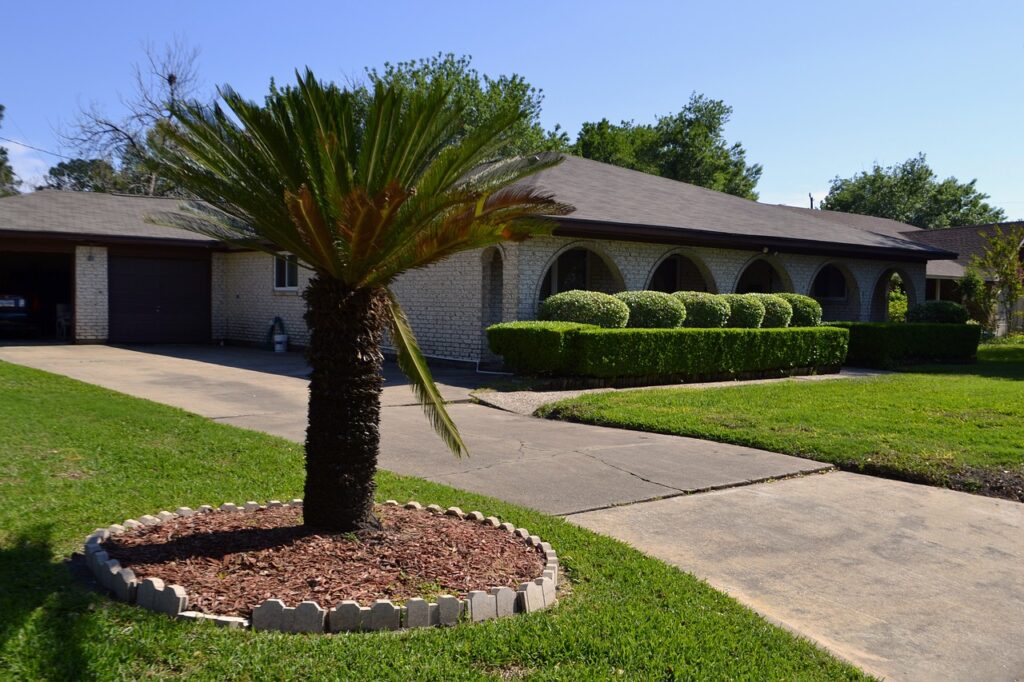Mulch is often added to gardens and flower beds to help prevent weeds, protect the plants and soil from harsh winter conditions, and retain moisture. Often, mulch is made from organic materials like tree bark, sawdust, leaves, or something similar. That means that, eventually, it will break down. Often, except for the most robust, it will break down after a season. This means that it needs to be replaced. You have to find something to do with the old mulch. Can you compost old mulch? Let’s take a look at that.
Composting is the process of taking advantage of natural functions that break down organic material into its component parts. The resulting compost is rich in nutrients that enhance the soil’s nutrients and characteristics. This is great for plants and flowers and can lead to healthier, stronger plants. You do this all while reducing the amount of material going to landfills and many other benefits.
While most organic material is technically compostable, often, it’s not practical. With old mulch, you can typically compost it, with a couple of exceptions that we will discuss shortly. However, you may not need to and still get the benefits, which we will discuss.
Before you even consider if you can compost old mulch, check it out. You can reuse it if it’s still intact with large, sturdy pieces. Particularly some of the tree bark mulches can hold up multiple seasons. In that case, you don’t need to compost or otherwise get rid of your mulch.
You can tell this by scooping up the old mulch in your hands.
When You Can’t Compost or Use Old Mulch
The key to knowing if you can compost old mulch is to know what your mulch is made out of. If your mulch doesn’t match these characteristics, you must collect it from your garden or flower bed and throw it out. Here is what we are looking for
- Must be organic – To be compostable, your old mulch must be organic. It must be out of wood, straw, grass clippings, or something similar.
- No Dyes – Some mulch is dyed to give it a particular look or color. These dyes could be toxic to your soil or compost.
- No Fungus – Occasionally, mulch will develop a fungus. If you see signs of fungus on your mulch, it is best to throw it out so that you don’t spread something you don’t want to your plants or compost.
- No Infestations – If the plants that the mulch was covering or near had any sort of infestation, such as insects, fungus, diseases, or something else you don’t want to spread, then don’t keep the mulch. You could spread it further. Larvae can also make a home in your mulch which will then breed and spread to your compost and wherever you add it.
- Not Treated with Chemicals or Pesticides – If you treated your mulch with any chemicals or pesticides, throw it out.
Otherwise, you should be fine to compost your mulch. Move it around in your hands. If it’s broken up and falling through your hands like dirt, it’s too degraded to continue using as mulch.

You Can Skip Composting If You Want
While you can compost organic mulch that has broken down, you may not even need to, especially if the mulch is already decomposing. Mulch will eventually break down naturally in the same way it will in the compost pile. Since your flower bed isn’t an ideal composting environment, this will take much longer than in a compost bin, but it will happen.
If your old mulch is already breaking down, you can mix it into the top portions of the soil it’s already on.
One catch to doing this is that you still want to add compost. The microbes breaking down the mulch will use up nitrogen in the soil when they do that. In your compost pile, you take care of this by adding nitrogen-rich material so there is plenty of nitrogen left over. In your garden or flower bed, your flowers will have less nitrogen available for their growth, so compost will add that back into the system.
Here is how you can add your old mulch back into your garden or flower bed:
- Remove any excess mulch from the soil. If you have large pieces that remain, you may want to remove them. They will take a while to break down, and this helps to reduce nitrogen deficiencies.
- Using a shovel or a comparable tool, till the mulch into the first 2-4 inches of the soil.
- Mix in compost with your old mulch and continue tilling.
- Make sure the compost/mulch mixture is spread evenly.
- Add a thin layer of new mulch if you want.
Old mulch added to your garden or flower bed like this has several benefits.
- It adds carbon and other nutrients to the soil
- Provides a barrier, helping to retain moisture in the soil
- It attracts earthworms to the surface. The earthworms help to aerate the soil.
While you can compost old mulch, it may be just as easy to add it directly back into the soil to get many of the benefits.
How to Compost Old Mulch
Now that you’ve decided to compost your old mulch, it’s pretty easy to do so. You can add it directly to your compost bin. Ensure you have a good source of nitrogen-rich green materials and moisture to avoid drying out your compost. Your compost should have about the consistency of a wrung-out sponge, damp but not wet.
If you can, old mulch is great when added to the bottom of your compost bin. It creates air pockets and attracts earthworms to your compost pile. Both of these help to improve the efficiency of your composting.
Like most materials, old mulch will compost most easily in smaller pieces. The more broken down it is, the faster it will compost. It’s not a huge problem, if it hasn’t completely broken down by the time you harvest the compost, you can either add the big pieces back for more composting or add them to the soil. This isn’t really any different than mixing it directly into the soil.

How Long Does Old Mulch Take to Break Down?
It’s difficult to answer how long old mulch will take to break down because it can be made from many different materials. Looking at the extremes, more solid materials like bark will take six months or more to fully compost. Things like grass clippings will compost much more quickly, one to three months in a healthy compost pile.
Can I Compost Old Mulch?
Yes, you can compost organic old mulch provided it doesn’t have dyes or diseases. You can mix it directly into the soil if that makes more sense.
Either way, you want to make sure it’s actually breaking down and that you can’t use it again.
